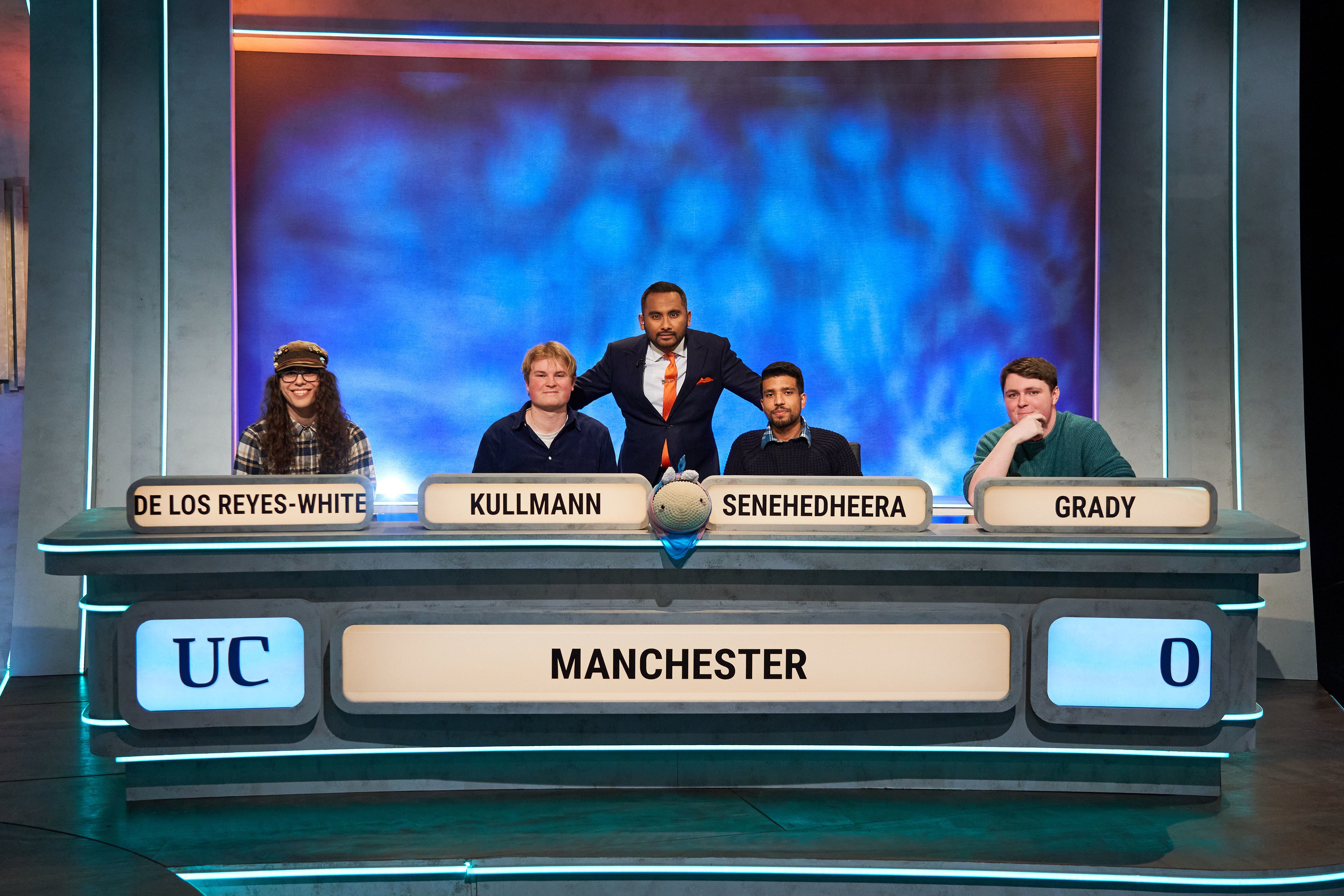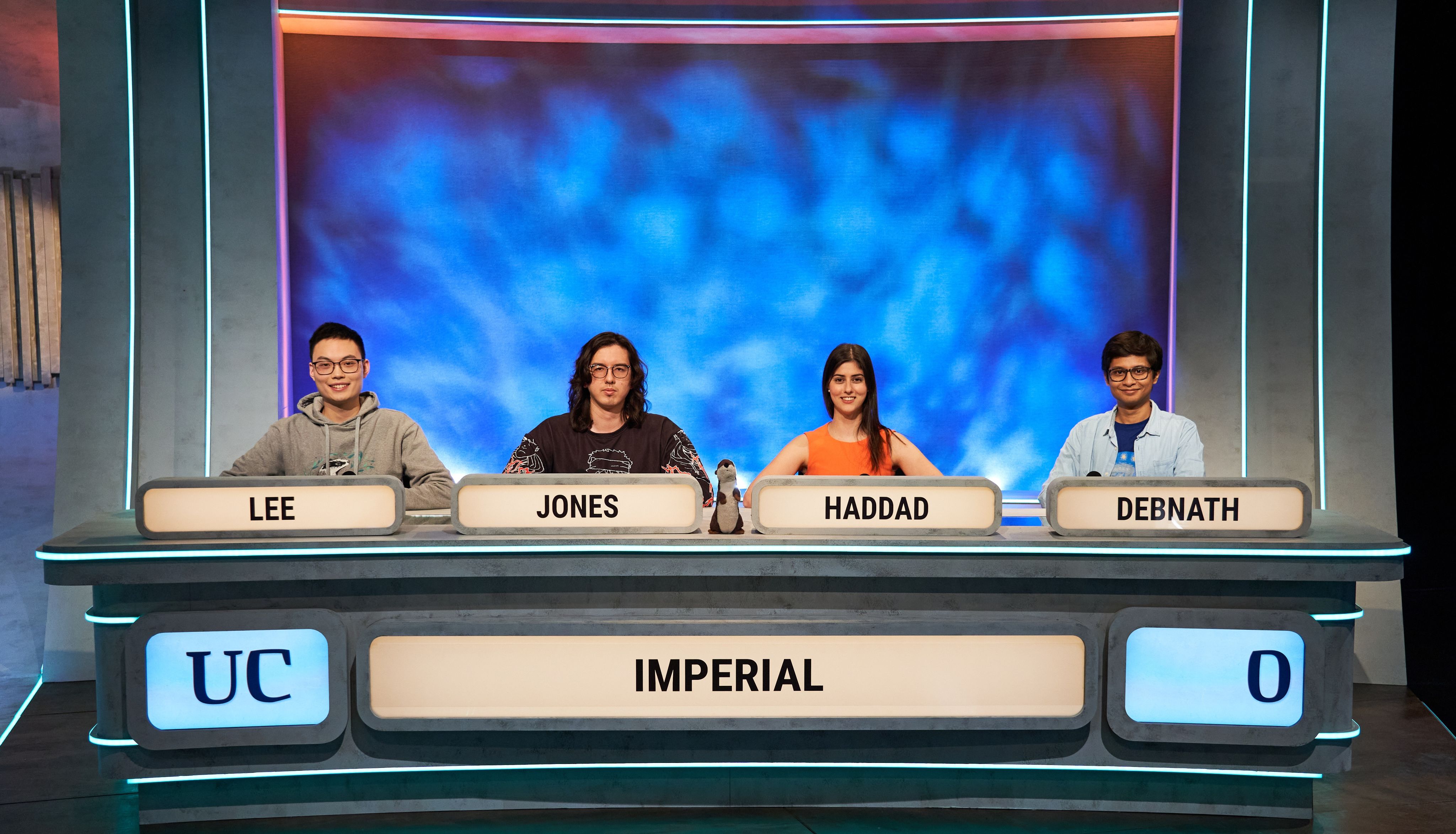University Challenge: An Elite Battle Of Minds is an iconic British televised quiz show that tests the academic prowess of university students across the United Kingdom.
Editor's Notes: University Challenge: An Elite Battle Of Minds is one of the toughest quiz shows on TV. So we've put together this guide to help you understand the format and rules of the show, and give you some tips on how to watch it.
To help you understand the format and rules of the show, and give you some tips on how to watch it, we've put together this guide to help target audience make the right decision.
| Key differences | Key takeways |
|---|---|
| Format | Two teams of four students answer questions on a variety of academic subjects. |
| Rules | Teams take turns to answer questions. If a team answers a question correctly, they get a point. If they answer incorrectly, the other team gets a chance to answer. |
| Tips | Watch the show regularly to get used to the format and rules. Read up on a variety of academic subjects so that you can answer the questions. |
Transition to main article topics
FAQ
The popular television quiz show University Challenge: An Elite Battle Of Minds has garnered both admiration and a slew of questions throughout its long and storied history. This comprehensive FAQ page will attempt to address some of the most frequently asked questions regarding the show's format, participants, and overall impact.

University Challenge: Amol Rajan ‘excited’ to take over from Jeremy - Source www.independent.co.uk
Question 1: What is the format of University Challenge?
University Challenge is a quiz competition between teams of four students, representing different universities or colleges in the United Kingdom. The show consists of several rounds, including a written qualifying round, a series of head-to-head matches, and a grand final.
Question 2: Who can participate in University Challenge?
University Challenge is open to undergraduate students who are enrolled full-time at a recognized university or college in the United Kingdom. Each team consists of four students, who may come from any discipline or faculty.
Question 3: What is the level of difficulty of the questions asked on University Challenge?
The questions asked on University Challenge are notoriously difficult, covering a wide range of subjects, including history, literature, science, and the arts. The questions are designed to test the students' knowledge, critical thinking skills, and ability to think quickly under pressure.
Question 4: What are the prizes for winning University Challenge?
The winning team of University Challenge receives a trophy and a cash prize. In addition, the individual members of the winning team are often awarded scholarships or other academic opportunities.
Question 5: What is the impact of University Challenge on the participants?
University Challenge can have a significant impact on the participants. Many former contestants have gone on to successful careers in academia, journalism, and other fields. The show also helps to promote a culture of intellectual curiosity and competition among students.
Question 6: How can I watch University Challenge?
University Challenge is broadcast on BBC Two in the United Kingdom. It is also available to watch on BBC iPlayer and other streaming services.
In conclusion, University Challenge is a challenging and entertaining quiz show that has become a cultural phenomenon in the United Kingdom. The show's unique format, knowledgeable participants, and difficult questions have made it a favorite among viewers of all ages.
For more information about University Challenge, please visit the official website.
Tips by "University Challenge: An Elite Battle Of Minds"
To excel in intellectual competitions such as "University Challenge", meticulous preparation and strategic approaches enhance one's chances of victory. This article presents valuable tips inspired by the show, empowering aspiring quizzers with the tools to dominate mental battles.
Tip 1: Cultivate a Comprehensive Knowledge Base
- Embrace a wide range of subjects, from history and literature to science and popular culture.
- Engage in continuous learning through books, articles, documentaries, and intellectual discussions.
- Focus on establishing a foundation in core disciplines and expanding into niche areas of interest.
Tip 2: Practice Active Recall and Revision
- Frequently test oneself on acquired knowledge to improve memory retention.
- Utilize flashcards, spaced repetition techniques, and practice answering questions without referring to notes.
- Engage in discussions and debates to reinforce concepts and challenge understanding.
Tip 3: Develop Critical Thinking and Analysis Skills
- Break down complex questions into smaller components to identify key elements.
- Evaluate the credibility and relevance of information, considering multiple perspectives.
- Formulate logical arguments supported by evidence and reasoning.
Tip 4: Hone Research Abilities
- Master the use of search engines and databases to efficiently locate relevant resources.
- Evaluate the reliability of sources and cross-reference information to ensure accuracy.
- Develop a system for organizing and synthesizing research findings.
Tip 5: Enhance General Knowledge
- Stay informed about current events and cultural trends through news, documentaries, and social media.
- Pursue hobbies and interests that expand one's knowledge base, such as reading, traveling, or attending lectures.
- Engage in casual quizzes and trivia to stimulate memory and test general knowledge.
Tip 6: Cultivate a Competitive Spirit and Resilience
- Develop the drive to succeed and push the limits of one's abilities.
- Embrace challenges as opportunities for growth and learning.
- Learn from setbacks and strive for continuous improvement.
Tip 7: Seek Mentorship and Collaboration
- Identify experienced quizzers or subject matter experts who can provide guidance and support.
- Join quizzing societies or study groups to collaborate with like-minded individuals.
- Engage in constructive debates and discussions to challenge perspectives and learn from others.
Tip 8: Maintain a Balanced Approach
- Recognize the importance of rest and relaxation to maintain cognitive function.
- Pursue activities outside of quizzing to prevent burnout and maintain a healthy perspective.
- Remember that knowledge acquisition and intellectual development are a lifelong journey.
By implementing these tips, aspiring quizzers can significantly enhance their performance and excel in intellectual competitions. With a commitment to continuous learning, critical thinking, and a competitive spirit, they can join the ranks of the elite minds who triumph in the "University Challenge" and beyond.
University Challenge: An Elite Battle Of Minds
University Challenge is a British television quiz show that tests the knowledge of university students. It is one of the longest-running and most prestigious quiz shows in the world, and it has been praised for its high level of intellectual difficulty.

Challenge University - Source fity.club
- Academic Rigour: Questions demand extensive knowledge and critical thinking.
- Elite Competition: Teams represent top universities, fostering a sense of academic excellence.
- Cultural Significance: Features in popular culture, shaping perceptions of higher education.
- Mind Sports: Emphasizes cognitive abilities, strategy, and quick recall.
- Prestige and Legacy: Victories bring recognition and enhance university reputations.
- Intellectual Entertainment: Captivates viewers with its challenging questions and displays of academic prowess.
These aspects of University Challenge contribute to its enduring popularity and reputation as an elite battle of minds. The show's emphasis on academic rigor and elite competition fosters a culture of intellectual excellence, while its cultural significance and entertainment value make it accessible to a wide audience. The emphasis on mind sports showcases the cognitive abilities of the contestants, and the prestige and legacy associated with the show motivate the teams to perform at their best.

Hull alum runners-up in Christmas University Challenge final - Source www.hull.ac.uk
University Challenge: An Elite Battle Of Minds
University Challenge is a British television quiz show that has been broadcast on BBC Two since 1962. The show features teams of three students from different universities competing against each other in a test of their general knowledge. University Challenge is one of the most popular quiz shows in the UK, and it has been praised for its high intellectual content and its ability to showcase the academic prowess of the country's top students.

How to build a University Challenge team - Source www.imperial.ac.uk
The connection between University Challenge and intellectual excellence is clear. The show's questions are notoriously difficult, and they cover a wide range of subjects, from history and literature to science and current events. In order to succeed on University Challenge, students must have a deep understanding of their subject matter, as well as the ability to think quickly and creatively.
The show's format also encourages intellectual excellence. Teams are not allowed to confer with each other during the competition, which means that each student must rely on their own knowledge and skills. This forces students to develop their critical thinking skills and their ability to make quick decisions.
University Challenge has had a significant impact on British education. The show has helped to raise the profile of academic achievement, and it has inspired many students to pursue higher education. The show has also helped to create a more positive image of nerds and geeks, and it has shown that intelligence can be cool.
University Challenge is a valuable asset to British television. It is a show that celebrates intellectual achievement and that inspires viewers to learn more about the world around them. The show is a testament to the power of education, and it is a reminder that there is always something new to learn.
Table: Key Insights
| Insight | Example |
|---|---|
| University Challenge is a challenging quiz show that tests students' general knowledge. | The show's questions are notoriously difficult and cover a wide range of subjects. |
| The show's format encourages intellectual excellence. | Teams are not allowed to confer with each other during the competition, which forces students to rely on their own knowledge and skills. |
| University Challenge has had a significant impact on British education. | The show has helped to raise the profile of academic achievement and has inspired many students to pursue higher education. |
Conclusion
University Challenge is a unique and valuable television show that celebrates intellectual achievement. The show has helped to raise the profile of academic achievement and has inspired many students to pursue higher education. University Challenge is a testament to the power of education, and it is a reminder that there is always something new to learn.
The show's success is due in part to its challenging format and its focus on intellectual excellence. University Challenge is a show that rewards knowledge and intelligence, and it is a reminder that there is no substitute for hard work and dedication.
University Challenge is a show that inspires viewers to learn more about the world around them. The show's questions are challenging and thought-provoking, and they often lead viewers to explore new topics and ideas. University Challenge is a show that makes viewers smarter, and it is a show that is worth watching.